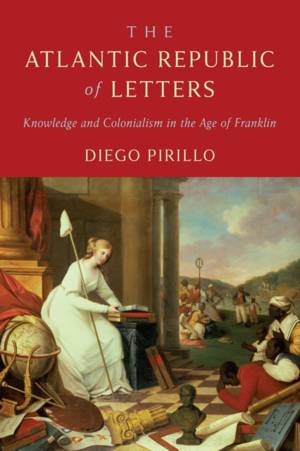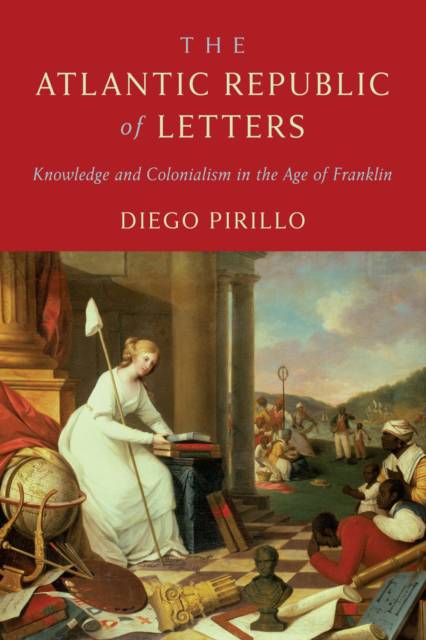
- Afhalen na 1 uur in een winkel met voorraad
- Gratis thuislevering in België vanaf € 30
- Ruim aanbod met 7 miljoen producten
- Afhalen na 1 uur in een winkel met voorraad
- Gratis thuislevering in België vanaf € 30
- Ruim aanbod met 7 miljoen producten
Zoeken
€ 72,45
+ 144 punten
Omschrijving
Places Benjamin Franklin's Philadelphia in the context of a broader Atlantic intellectual world and investigates the entanglement among books, knowledge, and colonialism
The Atlantic Republic of Letters offers an alternative intellectual history of early America. Focusing on Benjamin Franklin's Philadelphia, the book frames Euro-American colonialism as an intellectual enterprise, which was established not only through military and economic means but also through books, ideas, and cultural institutions. Through research in dozens of archives and rare book libraries, Diego Pirillo brings together two interconnected histories. First, he recovers the place of British America in the cosmopolitan world of the Republic of Letters, studying the communication system that facilitated the transatlantic circulation of knowledge. Second, he shows that knowledge was weaponized in the effort to survey and control North America. While fashioning themselves as independent and cosmopolitan scholars, Franklin and his associates, including James and Martha Logan, Isaac Norris II, Pierre Eugène Du Simitière, and Jane Colden, among others, were in fact deeply tied to political power and tailored their ideas to the needs of their patrons. They served as agents of empire and helped to devise and put into practice the colonial project. Not only were books, libraries, and cultural institutions funded by the wealth created by the slave trade and the expropriation of Indigenous land, but, as Pirillo argues, the very taxonomies and classification systems that Euro-American scholars devised directly shaped the colonial enterprise. In this respect, The Atlantic Republic of Letters illuminates the relationship among books, intellectuals, and colonial governance, and explores the ways in which knowledge circulated and shaped conquest.Specificaties
Betrokkenen
- Auteur(s):
- Uitgeverij:
Inhoud
- Aantal bladzijden:
- 344
- Taal:
- Engels
- Reeks:
Eigenschappen
- Productcode (EAN):
- 9781512829310
- Verschijningsdatum:
- 5/05/2026
- Uitvoering:
- Hardcover
- Formaat:
- Genaaid
- Afmetingen:
- 152 mm x 229 mm

Alleen bij Standaard Boekhandel
+ 144 punten op je klantenkaart van Standaard Boekhandel
Beoordelingen
We publiceren alleen reviews die voldoen aan de voorwaarden voor reviews. Bekijk onze voorwaarden voor reviews.








